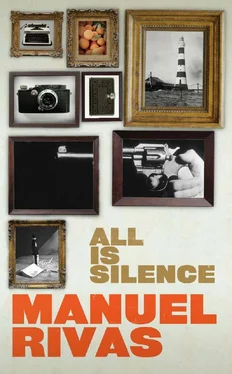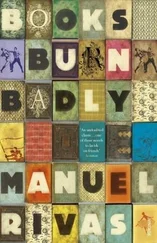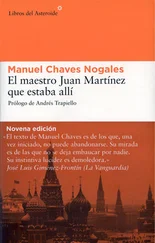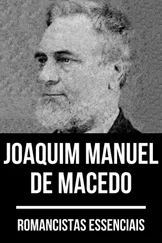‘There are few things I enjoy more,’ says Alisal. ‘Even on my own.’
‘Me too. Without pieces.’
Mara Doval unscrews one of the pieces, a pawn in the shape of an obelisk.
‘They think cocaine is just this…’
She turns the pawn upside down and a small pile of white dust falls on to one of the squares. She does the same with the bishop and the rook in the shape of a warrior. Till she reaches the king and queen.
‘But in fact it’s this and this and this…’
Suddenly she lifts the board, revealing a false bottom full of the drug.
‘And this! All of it flour.’
‘We’re talking about tons of the stuff,’ says Fins. ‘Thousands of kilos of cocaine. Thousands of millions in profit. Snow, blow, stardust! They want to turn this coast into the largest landing stage in Europe. It may already be that.’
Mara Doval adds, ‘They’ll buy out people, territory… They’ll buy out everything. That’s magical capitalism for you!’
Alisal is deep in thought, his gaze fixed on the chess set.
‘It’s the institutions that worry me. A worm is just a worm. The problem arises when the worm rots the apples. Superintendent, it’s time we had a comprehensive, definitive report. They can write it. And I’ll make sure it gets to where it has to.’
‘We’ve already written the odd report,’ remarks Fins.
‘This time will be different, I promise.’ Lieutenant Colonel Alisal bangs his fist on the table. ‘If it’s up to me, there’ll be tremors in Babylon!’
IN A SMALL bay next to Cons lighthouse, between the rocks, lay the body of Guadalupe. There were local police, Civil Guards and ambulance staff. They’d recovered the body from the inside of her car, which had left the road and fallen like a lead weight into the water. Mariscal was informed and soon arrived. He looked grief-stricken. An accident. A mistake. The light had blinded her. When the coroner arrived, he offered his condolences. Mariscal’s eyes were red. He looked old. Found it difficult to talk. The occasional murmur, apparent delirium. ‘ Chaves da vida .’ ‘That carmine letter box…’ ‘I’m not going, I’m not going.’
‘As everyone knows, we spent some time apart. This wasn’t something I wanted. I was very sorry about it. She had this problem with depression…’
He mentioned this when the doctor from the Red Cross came over to compare notes with the coroner. ‘It must have been early in the morning. Judging by the corpse, I’d say she’s been dead for six hours.’
‘What condition is the body in?’
‘There’s nothing strange about it, sir. Not a scratch. Certainly no sign of violence. With what we’ve got, I’d say it was death by drowning.’
Mariscal talked to himself and to others.
‘She loved walking barefoot along the beach, feeling the water tickling her feet. She couldn’t bear to be a day without seeing the sea. It was in her veins. Ever since she was a girl, you know?… I’m sure you don’t… she worked over there, on the shore, gathering shellfish, the sea up to her waist. And that is where she died.’
‘I’m sorry, Mr Brancana, but given the circumstances we’ll have to perform an autopsy. A forensic autopsy.’
He breathed in through his nostrils. An energetic, hoarse inhalation of air which distorted his face. A forensic autopsy. He glanced over at that woman, Malpica’s colleague, madly taking photographs of the corpse.
‘Of course, coroner. Everyone is here to do their duty.’
Mónica, who worked in Bellissima, arrived at the beauty salon at the usual hour. Guadalupe, the owner, was the one who usually opened up. She did so an hour earlier. There weren’t normally customers, but she used this time to make calls, place orders, etc.
Mónica rang the bell again. She was surprised. She looked at her watch. Tried to peer in through the frosted glass of the door.
This had never happened before. If there was some kind of problem, Guadalupe always let her know.
Nothing.
She got ready to wait. Half an hour at least. Guadalupe didn’t like being called at home. But if she didn’t turn up, Mónica would have to call. She took a pack of cigarettes out of her handbag and lit one.
A strong-complexioned man crossed the street. In a black leather jacket. She knew who it was. Carburo. He growled some kind of greeting. Hello, girl.
‘You know something? Guadalupe’s not coming.’
‘Not coming? Till when?’
‘Till… I don’t know. She’s not coming.’
‘I don’t understand.’
‘You don’t have to understand. She’s not here. She’s gone. She won’t be coming back. The beauty salon’s closed. Got it now?’
Mónica managed to unhook a cloud of smoke from her mouth.
She watched Carburo pull an envelope out of his jacket pocket, which he slapped against the palm of his hand in a gesture that was as meaningful as it was redundant, the way you would a wad of notes.
‘Take this. It’s a message for you. A very valuable one. Fifty thousand pesetas. Listen, Mónica…’
The girl stuffed the envelope into her bag as quickly as possible. She was afraid.
‘While you were here, you saw nothing, heard nothing. You remember nothing. Am I right?’
She was incapable of answering. Not even a monosyllable. She shook her head in a panic. No, no, no.
‘Good. Now the best thing for you to do is go. Far away from here, understand?’
‘Far away?’
‘Yes, far away. The further the better. And don’t wait until tomorrow. Tomorrow is too late.’
As he said this, Carburo’s gaze encompassed the surroundings, the insides of people passing by.
No, he couldn’t believe it. She’d been the singer. Had had to wait twenty-five years like a dead cat.
He looked up at the sky. Too much light.
Is this how the devil repays the one who serves him? My very own prima donna!
The sinking was as a result of the height.
And that snotty-nosed Malpica calling me ‘capo’. An idiot, a troublemaker, who thinks he’s going to sort out the world.
Capo? He wasn’t a capo. Like that other guy, who called him the head honcho. ‘You’re the head honcho, Don Mariscal.’ He’d already warned him. ‘There’s no honcho around here, let alone a head one.’ Aliases like that gave you away, made you look ridiculous. He could see himself on the front page of the Gazeta , ‘Tomás Brancana the Head Honcho’. Then he thought about who he was. Gazed at the horizon, searched for the bell tower of St Mary’s. He was… What was he? A dean. The Dean. That’s right. There were priests in different parishes, and then there was the dean. No, the director of the seminary hadn’t liked him. Because let’s stop beating about the bush. The director knew what he’d said, and nobody else. He wasn’t going to spill the beans. ‘Are you sure about your vocation?’ the director had asked. ‘Yes, father.’ ‘How do you think you can serve God?’ And here he’d noticed a touch of irony. Keep calm. The storm clouds are coming. As a child, ringing the bell of St Barbara’s. No, he’d never said anything about becoming pope. Or bishop. Or even dean. ‘The way God chooses.’ ‘But there must be something in your head?’ ‘A good parish.’ This is what he’d heard as an acolyte in the sacristy, what one priest had said to another: ‘Listen, Bernal, parishes are measured by the number of hosts that are consumed and the number of pesetas they bring in.’ Neither pope nor dean. ‘What I want is a good parish, father.’ That’s what he’d said. And who doesn’t?
Mutatis mutandis .
Who’d have thought she would be the principal singer. The prima donna!
Floating like a butterfly, stinging like a bee.
Читать дальше












